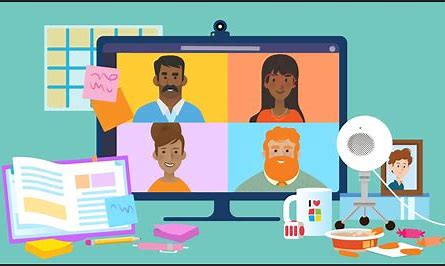- Posted on
- Parents,Technology,Wellbeing
Remote Learning – 10 Tips for Parents and Carers
1. Balancing the role of parent and “teacher”
“You were not trained to teach children, but we all have a natural inclination to be teachers. See your role as more of a learning coach. Your key role is to encourage, be interested, foster curiosity and know when they really need a break. There will be times where a short walk is the best thing for everyone,”.
2. Set up learning areas
“Young people do not cope well with sitting in one place for an entire day. Where possible, create different spaces for different types of learning – they don’t need to be extravagant.”
Main Learning Area – where students participate in online classes, work on problems, make notes or complete written tasks. The best option is the dinner table. If you have several children they can share this space, and headphones may assist in minimising disruption of siblings, and similarly peers in online classes.
Passive Learning Areas – lounge areas or outdoors. This will suit reading, thinking about ideas and solutions or reviewing notes they have made. Allowing children to work on appropriate tasks in their rooms or another private space is also helpful. This will be important should you have more than one child.
3. Sleep
“Be willing to allow additional sleep time. Young people need 8-10 hours of sleep. The last hour of sleep is critical and aids memory retention. Be careful not to allow children to oversleep though,”
4. Create a structure
“It is important to formalise the change in learning environment. A day planner is a good idea. Students can set goals each day, factor in any online class times and plan what they need to do on the planner. Break and mealtimes are critical. There are no hard and fast rules over how many breaks, but as their parent you are likely to know if they genuinely need a break or are avoiding work.”
5. Support, but resist doing the work
“Be available to make suggestions and answer questions, but try to let your children do things themselves as much as possible. If you don’t know the answer, work with your child to discover a solution,”
“Let your child, where possible, self-regulate – that is to take control of their own learning and not rely on you. Be a motivator and monitor. Ask about assignments, quizzes, and tests. Give encouragement, check completed homework, and make yourself available for questions and concerns.”
6. After school screen time
“Depending on how things pan out, your child may be looking at screens for longer than normal. If this is the case, minimise non-school related screen time after school hours. At very least, create some separation between the learning day, and the use of screens in relaxation time.”
7. Reading
“Encourage them to read. Model reading, get your books and discuss them. Biographies and auto-biographies of people who have endured challenges and overcome them may be very beneficial in these challenging times. Improved reading will help them in all learning areas.”
8. Don’t allow game addiction to flourish
“Computer games are highly addictive. Don’t let young people lapse into playing games to kill time. It is tempting but destructive.
9. Physical activity
“Look for opportunities to incorporate physical activity into the day. Some fresh air and exercise will make minds more active and alert and can help reduce stress.”
10. Have fun, play games, cook together
“Trying new things and creating ways of connection can build stronger relationships”
Seek Support if needed from your Wellbeing teacher, Wellbeing and Community Leader, or Student Services. Other support:
You can also get support from other organisations, including:
Kids Helpline
1800 551 800 or kidshelp.com.au
Headspace
1800 650 890 or eheadspace.org.au
Beyond Blue
1300 224 636 or beyondblue.org.au
Lifeline
Butterfly Foundation
1800 334 673 or butterfly.org.au
1800RESPECT
1800 737 732 or 1800respect.org.au
Coronavirus advice hotline



